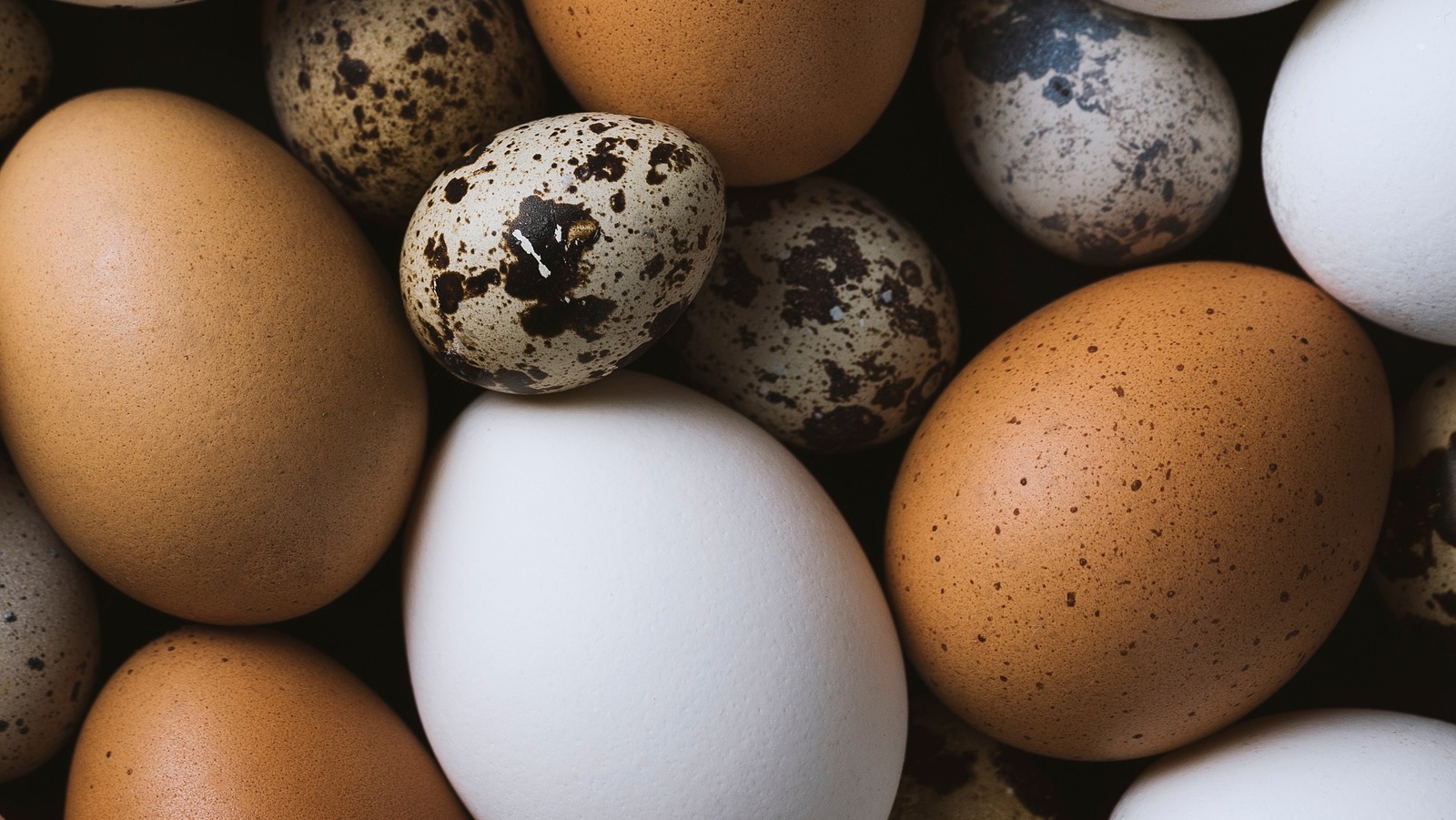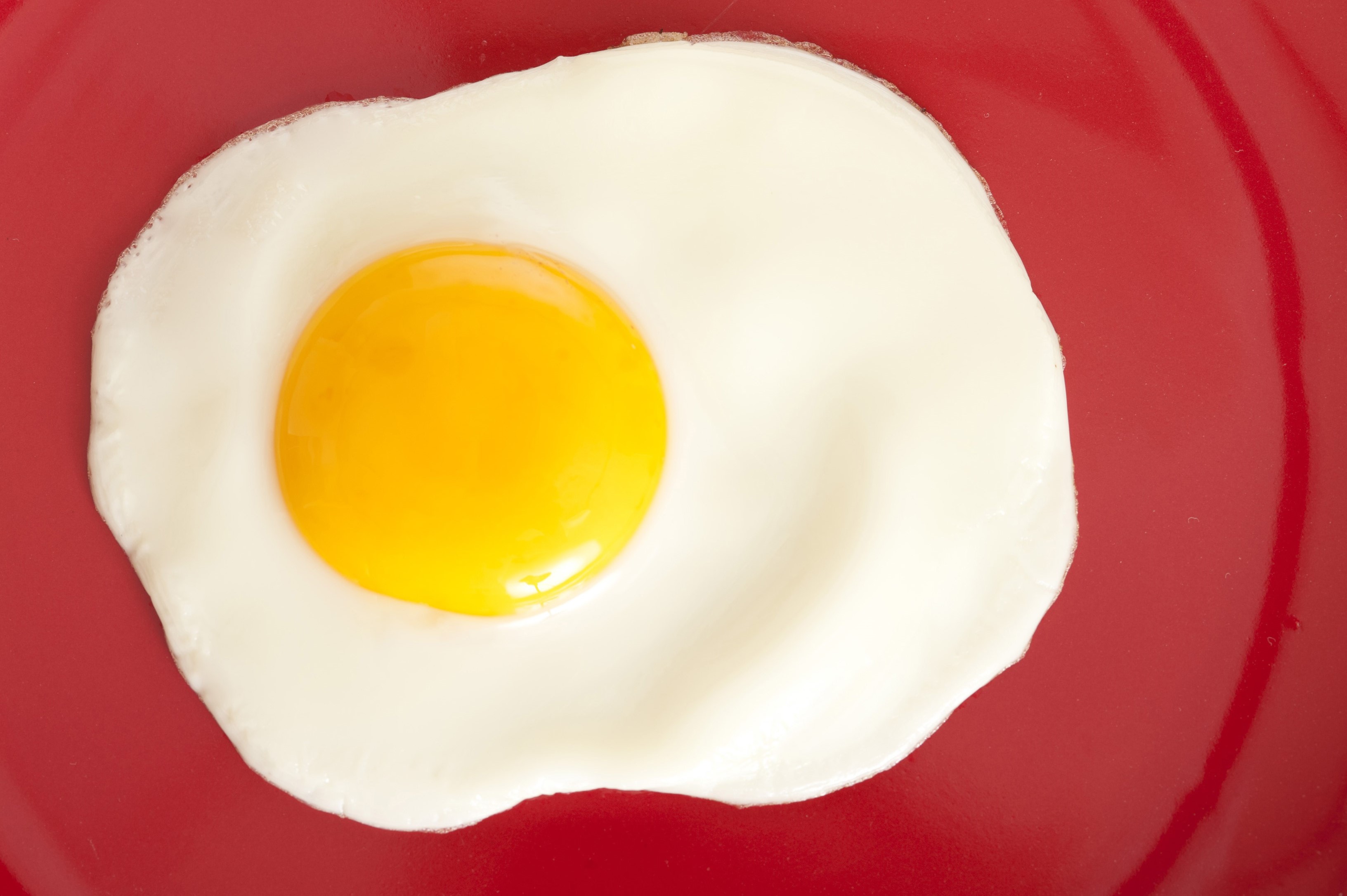The Incredible Edible Egg - Why We "I Egg You"
Have you ever stopped to really think about something as simple, yet truly amazing, as an egg? It’s more than just a food item, you see, it’s a tiny miracle, a complete package of life's building blocks, all wrapped up in a neat little shell. People have been enjoying these natural wonders for countless years, and for very good reason. They are, in a way, a fundamental part of what many cultures eat, and their presence in our kitchens is almost a given.
From its humble beginnings as a way for creatures to make more of themselves, to becoming a kitchen staple around the entire planet, eggs hold a special spot in our diets and, well, in our hearts too. They are, in some respects, a small wonder, providing so much good stuff in such a compact form. This small, oval package, basically, carries a lot of history and a lot of nourishment, making it a truly remarkable natural product that stands the test of time.
So, what makes this everyday item so fascinating? And why do we often feel such a strong connection to them, almost like saying, "I egg you," meaning we appreciate all they bring to our tables and our bodies? Let's take a closer look at what makes this little oval so special, and perhaps, you know, discover some things you might not have known about this common food.
Table of Contents
- What Exactly Is An Egg, Anyway?
- How Does An Egg Get Its Start? I Egg You To Know
- What Goodness Does An Egg Hold?
- Why Are Eggs So Important for Us? I Egg You To Consider
- Are All Eggs The Same?
- How Have People Eaten Eggs For Ages? I Egg You To Discover
- Can Eating Eggs Be Too Much?
- What Should You Do If Eggs Are Recalled? I Egg You To Be Safe
What Exactly Is An Egg, Anyway?
A little egg, you know, it's sort of like a tiny, natural container that a creature makes to hold a new life, a tiny beginning, and then to keep it safe while it grows inside until it's ready to come out. It’s a pretty neat trick of nature, if you think about it. Basically, this small, self-contained package is designed to nurture a new being from a single tiny cell into a more developed little animal. So, too, these small, oval wonders carry within them the complete blueprint and all the necessary materials for a new existence to take shape, which is quite astounding when you stop to consider it. It’s a prime example of nature’s clever ways of continuing life, all bundled up in a protective shell.
When you look at a whole egg, you might not realize it, but it actually contains all the bits and pieces, all the necessary good stuff, to turn that one tiny cell into, say, a baby chicken. It’s almost like a miniature survival kit, packed with everything a growing little one needs to get started. That's a lot of power in a small package, really. This means every single nutrient, every building block, is present and accounted for within that shell, providing a truly complete nutritional profile for the developing life inside. It’s a remarkable feat of natural design, honestly, providing everything from initial fuel to structural components.
How Does An Egg Get Its Start? I Egg You To Know
While the main purpose of an egg is, well, to make more of its kind, most of the eggs we see and eat aren't actually meant for hatching. They're the ones that weren't set aside to become a new bird, so, they end up in our grocery stores. These are the unfertilized ones, which means they won't grow into a chick. It's an important distinction, you know, between an egg that's going to become a living creature and one that's simply a source of food. This allows us to enjoy them widely without impacting the natural cycle of reproduction, which is a pretty convenient arrangement for us, actually.
The contents of these eggs, you know, are what we use as food. It’s pretty amazing how something meant for one purpose can be so wonderfully useful for another. So, when you crack open an egg, you're looking at a natural food source, pure and simple, that really delivers on nourishment. It’s quite a common item, after all, found in kitchens everywhere, proving its worth time and time again. Their simple structure, basically, makes them incredibly versatile for cooking, whether you’re scrambling them, boiling them, or using them in a cake.
What Goodness Does An Egg Hold?
Eggs, you see, bring a whole lot of helpful things to the table. They truly come with an impressive amount of good stuff for your body. Think of them as tiny powerhouses of nourishment. They are, in a way, a compact source of many things your body needs to keep going strong. This includes a variety of beneficial elements that contribute to overall well-being, making them a wise choice for a balanced eating plan. So, too, their natural composition means they deliver these helpful components in a form that's easy for your body to use, which is a real plus.
It's interesting to note that while both the yellow part and the clear part of the egg have protein, the yellow part, the yolk, has many more of those really important body-building elements. So, if you're looking for a wider range of helpful bits, the yolk is where a lot of that good stuff is found, apparently. A large egg, about 50 grams, really holds a lot of these concentrated nutrients, making it a significant contributor to your daily needs. The yolk, basically, is where a good portion of the egg’s nutritional magic happens, providing a rich array of vitamins and minerals that the white simply doesn't.
Eggs also give you a bunch of different helpful compounds for your body, like certain protective elements and the building blocks of life. They're a pretty complete package in that sense. They are, you know, a simple way to get a lot of what you need without a lot of extra fuss. This combination of elements supports various bodily functions, from maintaining good vision to helping your body repair itself. So, too, they contain natural substances that act as bodyguards for your cells, which is a pretty neat benefit from such a common food item.
Why Are Eggs So Important for Us? I Egg You To Consider
People have been eating eggs for a very, very long time, for thousands of years, actually. There are many kinds of eggs out there, but the ones we see most often, the common pick, are those from chickens. They're just so readily available and, well, quite tasty too. This long history of consumption points to their consistent value as a food source across different cultures and eras. So, too, their widespread availability makes them an accessible source of nourishment for nearly everyone, which is a big part of their global appeal. They have, basically, stood the test of time as a reliable and beneficial food.
These chicken eggs contain a number of helpful elements for your body, bits and pieces that help you stay healthy. They provide a lot of these good things, like certain protective compounds and the building blocks your body uses. They're, you know, a pretty simple way to get a lot of what you need. This includes essential vitamins and minerals that play a role in everything from bone health to energy production. So, too, the combination of these elements means that eggs contribute significantly to a well-rounded diet, helping your body function at its best, which is quite important.
The vast majority of the good elements in eggs are found in that yellow center, the yolk. So, if you're just eating the clear part, the egg white, you might not be getting all the same good things. Egg whites are, basically, high in the body's building blocks and relatively light on other things. While egg whites offer a good source of protein with very little fat, the yolk is where the true concentration of vitamins like D and B12, and minerals like iron, really lies. So, too, choosing to eat the whole egg ensures you're getting the complete nutritional package, which is arguably the best way to enjoy them.
Are All Eggs The Same?
One large egg white, you know, has just a small amount of body fuel, about 17.2 units, and hardly any fatty elements, only 0.05 grams. It also comes with 3.6 grams of the body's building blocks. An egg white also has a fair amount of other helpful elements, about 54.8 milligrams of something else. So, they're quite different from the whole egg. This makes egg whites a popular choice for those looking for a lean source of protein without much fat or calories. They are, in a way, a distinct component of the egg, offering specific benefits that differ from the yolk’s more comprehensive nutrient profile. It’s pretty clear they serve different purposes in cooking and nutrition, actually.
While eggs are, in a way, a great source of protein, fat, and important vitamins, they don't have a lot of body fuel. They're a good choice for staying full and are very, very adaptable in how you can use them. You can cook them in so many ways, which is pretty cool. Their ability to be scrambled, fried, poached, or baked into various dishes makes them incredibly useful in any kitchen. So, too, their satisfying nature means a meal with eggs can keep you feeling content for a good while, making them an excellent option for breakfast or a light dinner. They are, basically, a simple ingredient that offers a lot of possibilities.
Though eggs do have a fair bit of a certain fat-like substance, eating them doesn't really change the levels of that substance in most people's blood. It's a common worry, but for most folks, it's just not a big deal, apparently. So, you can usually enjoy them without too much concern. This is because your body has its own systems for managing these levels, and dietary intake often has less impact than previously thought for the majority of individuals. So, too, focusing on a balanced eating pattern with lots of varied foods tends to be more important than worrying about one specific food item, which is a helpful thing to remember.
How Have People Eaten Eggs For Ages? I Egg You To Discover
Eggs are, basically, a fundamental part of what people eat all over the planet. They're well-known for how many ways you can prepare them and for all the good stuff they offer. But what exactly is an egg, you know, and what are its main parts? It’s a good question to ask when you think about it. Their universal appeal stems from their simple nature and the ease with which they can be incorporated into almost any cuisine. So, too, their ability to take on different flavors and textures makes them a chef's favorite, whether in simple home cooking or elaborate restaurant dishes. They have, in some respects, truly earned their place as a global food staple.
It's true that just one large egg yolk has a fair amount of that fat-like substance, about 200 milligrams, making it one of the richest natural sources. However, eggs also have other helpful things that might, in some respects, help keep those levels in check. So, it's not just one thing, but a whole mix of components. These other elements, such as certain protective compounds, work together to create a more balanced effect on your body’s systems. So, too, focusing on the egg as a complete food package, rather than just one component, gives a better picture of its overall health benefits, which is a good way to look at it.
The way people have prepared and enjoyed eggs has changed over time, but the core appeal remains. From simple boiled eggs to elaborate dishes, their adaptability is part of their charm. You can, like, use them in so many different recipes, which is why they're such a kitchen favorite. Think about the countless ways eggs

14 Different Types Of Eggs And How To Cook With Them

How to Cook Over Easy Eggs • The Heirloom Pantry

Free Stock photo of Fried egg on a plate | Stockmedia.cc